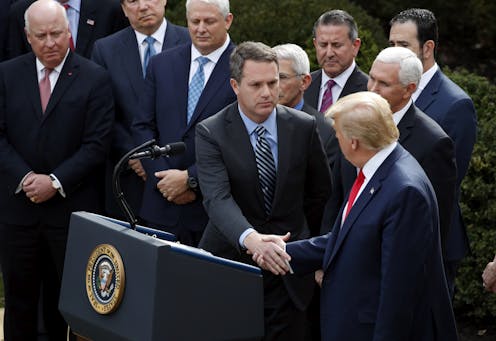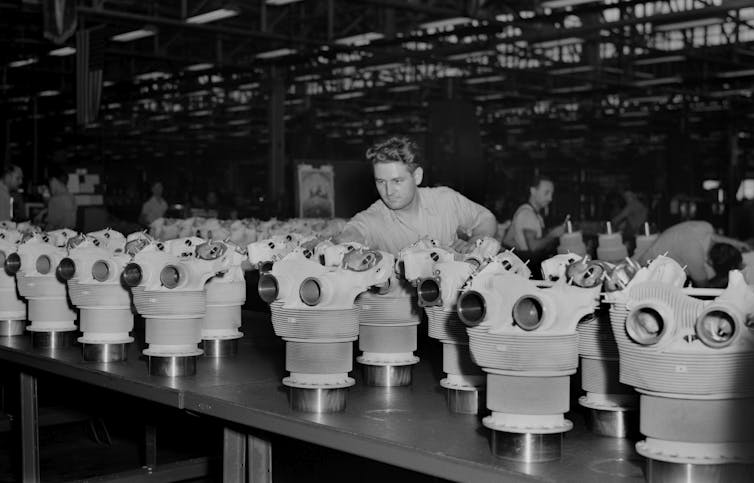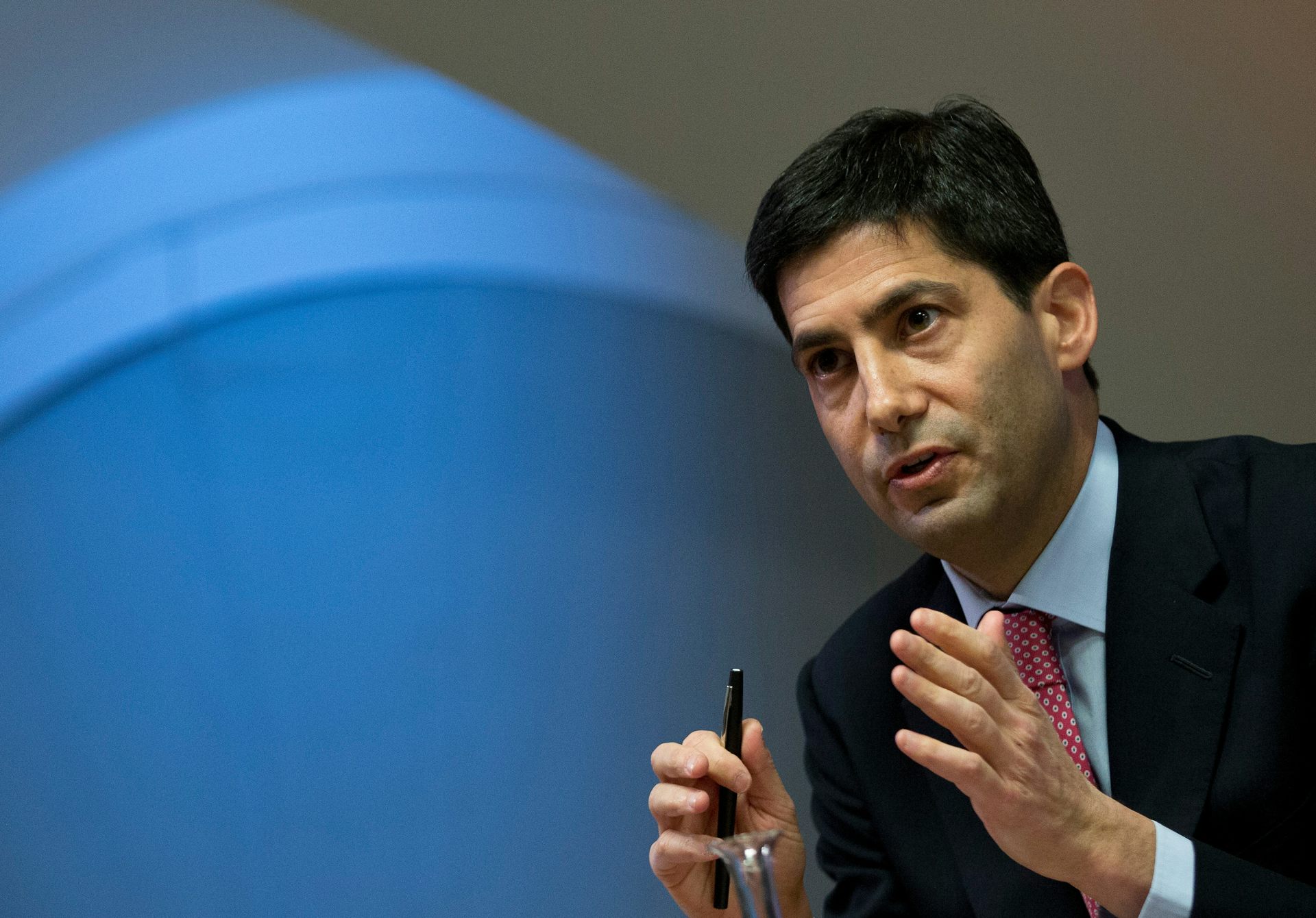Workers left out of government and business response to the coronavirus
If government and business collaborate with workers, a scholar of labor relations writes, current economic problems could get less severe, the recovery smoother and lasting prosperity more likely.

As the coronavirus crisis unfolds, workers and families around the country are finding out how weak the U.S. social safety net is.
Nearly three-quarters of Americans live paycheck to paycheck. About 30% of the workforce lacks employer-paid health insurance. One-third of workers lack paid sick leave. Most of those working in the self-employed economy as independent contractors don’t even qualify for unemployment benefits.
Those are the people who will most need whatever emergency relief may be coming from the government or their employers. But at the moment, they have no direct voice in the amount, or form, that aid may come in.
I have studied work and employment relations for over 40 years and worked directly with employers and unions to build partnerships capable of solving their most difficult problems. Lawmakers representing working-class communities, union lobbyists and advocates for the poor are doing what they can to get help, but they seem to be on the sidelines.
President Donald Trump has repeatedly trumpeted his interaction with corporate leaders to help address this crisis – but never said a word about talking with labor leaders about what support workers might provide.
The lessons of U.S. history and the actions of other countries right now suggest there are opportunities for government, business and workers to collaborate on ways to get through this crisis. That effort may, as it has in the past, also lay the groundwork for a new, more inclusive social contract that better prepares society for future crises and gives Americans better lives during good times as well.

A wartime footing
The historical lesson comes from World War II. As the U.S. entered the war in 1941, President Franklin D. Roosevelt called on leaders from business and labor to join the war effort. He created the National War Production Board to convert the economy to meet the country’s wartime needs. He also set up the National War Labor Board to oversee workers’ relations with management, aiming to avoid production disruptions and keep prices stable.
Those joint efforts enabled the conversion of factories that increased production of military aircraft so much that the country had roughly 3,000 planes before the war – and 300,000 by 1945.
The decisions of labor, business and government leaders in the War Labor Board also gave birth to many of the employment practices that created the post-war social contract: Wage formulas tied pay raises to productivity and the cost of living; employers paid fringe benefits such as pensions and health insurance; and workers and owners agreed to arbitration to resolve disputes without strikes.
The German approach to the coronavirus
In Germany right now, as part of the economic response to the coronavirus pandemic, the government is seeking to avoid mass layoffs by having employers and unions agree to shorten workers’ schedules. Unions and workers’ councils are discussing with industry leaders and company management how exactly to adjust production and worker needs.
In Sweden, Italy and Spain, unions, employers and governments have reached joint agreements dealing with worker safety, work hours and layoff benefits in light of the coronavirus crisis.

Bringing the effort home to the US
In my view, a similar effort could help the United States now. It will be a bit more complicated than in Europe because union-management relations are not as close here, but there is still a good opportunity.
Workers and companies in all sectors can contribute their skills, personnel and expertise to meet society’s new needs. For instance, manufacturers could help serve the surging demand for ventilators and other health care equipment.
Service-industry companies could have workers deliver care or aid to those most in need. For example, hotels and universities with dorms empty of students who have gone home could offer lodging to essential service staff working long hours, the homeless or others who need their own quarters. Many restaurants and their staff are offering takeout and delivery options to families. Schools and teachers can, as many are already doing, work together with parents to home-school children.
Even within the health care industry, there are opportunities for worker-employer partnerships. For instance, unions could reach out to mobilize retired staffers and those in union-led training programs, to bring them to the front lines where they’re needed. Workers’ councils could help redeploy existing staff to fill urgent shortages and coordinate support services for those who will be pulling long hours. Right now, a major hospital and union in Seattle are developing a way to provide backup child care for workers who need the help.

As events unfold
Looking ahead, workers and their unions in other industries could make sure government aid, temporary sick leave, family leave, unemployment pay, and other benefits and services get to those most in need.
My research shows that workers are eager to have a broader role in corporate governance and decision-making. This could be accomplished, for instance, if government bailout funds were conditioned on workers having seats on corporate boards or establishing joint worker-management consultative councils or committees to help allocate the money.
Worker input could help ensure that the aid goes to keeping people employed as much as possible, and providing financial and other supports for those who are laid off. Then as recovery comes, these same representatives can help keep business and workers together with a new spirit of commitment to get the business and the economy going again.
By working together in these ways in this time of crisis, business and labor might just lay the groundwork for building a new social contract that fills the holes in the social safety net and forges relationships that will serve society well in the future.
[You need to understand the coronavirus pandemic, and we can help. Read our newsletter.]
Thomas Kochan does not work for, consult, own shares in or receive funding from any company or organization that would benefit from this article, and has disclosed no relevant affiliations beyond their academic appointment.
Read These Next
US exit from the World Health Organization marks a new era in global health policy – here’s what the
The US will no longer participate in the WHO’s global influenza monitoring system – a shift experts…
3 things to know about Kevin Warsh, Trump’s nod for Fed chair
Trump’s pick to helm the Fed is well known in the financial world, but his monetary policy views have…
I’m a former FBI agent who studies policing, and here’s how federal agents in Minneapolis are underm
A policing scholar and former FBI special agent lays out the established principles of policing and…





